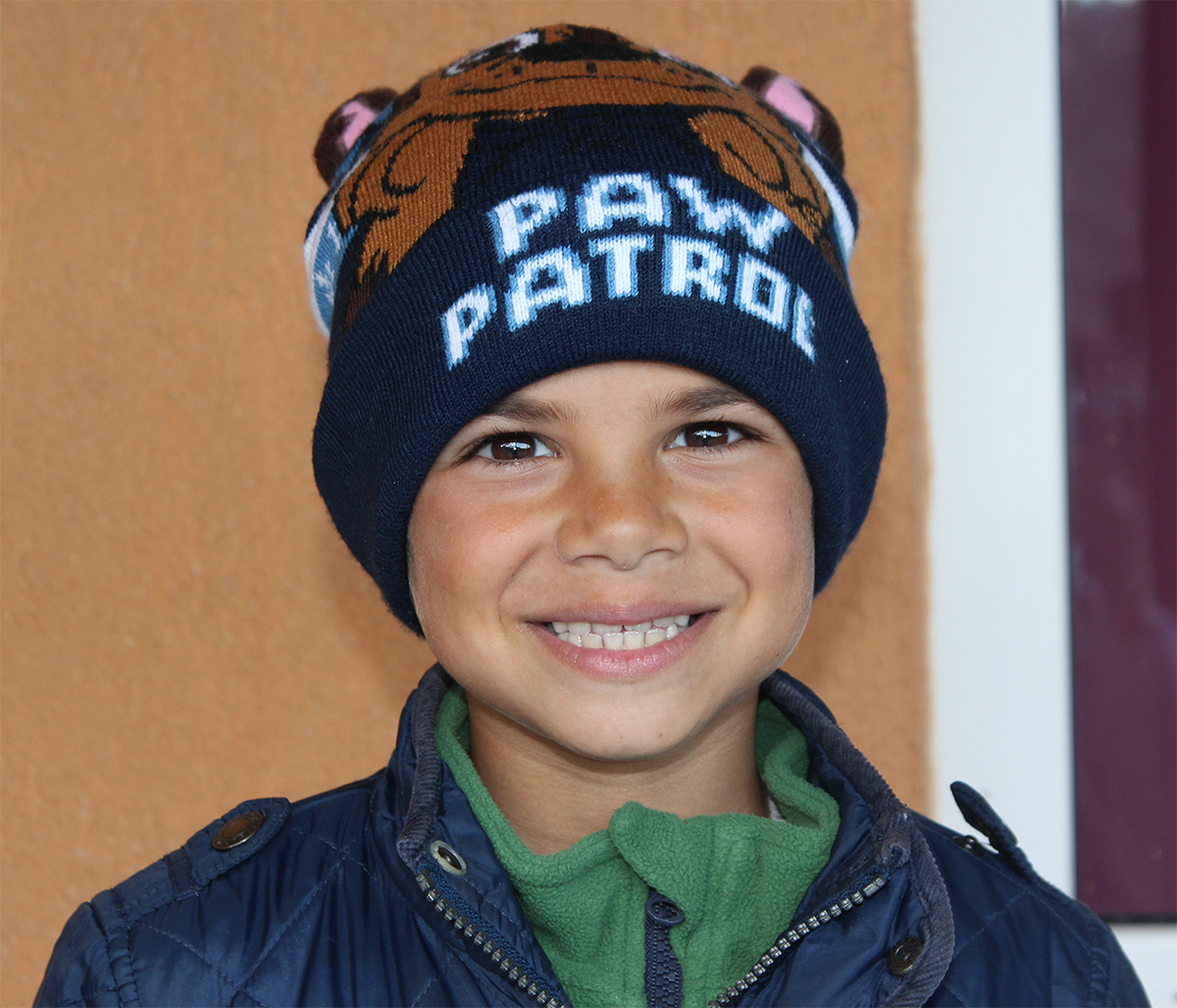
Something is stirring. Change is in the air.
For centuries, they’ve been marginalised, oppressed and denied a voice.
They’ve been viewed with suspicion and sometimes contempt.
They have been enslaved, persecuted and executed in concentration camps.
And they’ve long been outcasts from society across Europe… but for the Roma people, something is changing.
One key reason this is such an exciting moment in Roma history is that the Bible is being translated into Standard Romani in Romania. It will enable the Roma to be reached with the gospel message in new and powerful ways. And it has the potential to help transform their culture and sense of identity.
At the heart of this is a new – and positive – attitude in Romania towards the Roma people and the Romani language. After centuries of being marginalised and oppressed, in the past quarter of a century there has been a move for the Roma to be given the same opportunities as other ethnic groups. And for Roma culture to be fully included in society.
 Rafael Nastase, chair of the Standard Romani project committee
Rafael Nastase, chair of the Standard Romani project committee ‘The Romanian government is getting behind Romani culture, providing support in Roma communities and for teaching the Romani language in schools,’ says Rafael Nastase, who chairs the board of the Standard Romani project committee.
‘Since 1999, Roma children are being taught their own language in school. And the children aren’t being taught any of the many dialects of Romani, but Standard Romani, which is seeking to provide a common language for all Roma.’
This means that Standard Romani is set to become the language of the future for the Roma people, bringing the different Roma communities together through a common language. This in turn could give the Roma people a new sense of cultural unity.
This is where the work of Wycliffe in Romania comes in. Until 2021, the team had been working on different projects with different Roma communities. But they realised the opportunity afforded by the increasing awareness and use of Standard Romani. And that a newly translated Standard Romani Bible could become a crucial tool in teaching the language.
It was this that brought the Standard Romani translation team together.
Married couple Alexandra and Daniel Petrilă have been part of this team from its inception in October 2021.
‘It all came naturally,’ says Alexandra. ‘We heard about this project involving the translation of the Bible but we had no clue what it was all about. We met the rest of the team, and realised that this was a project we wanted to do. And that could have far-reaching impact.
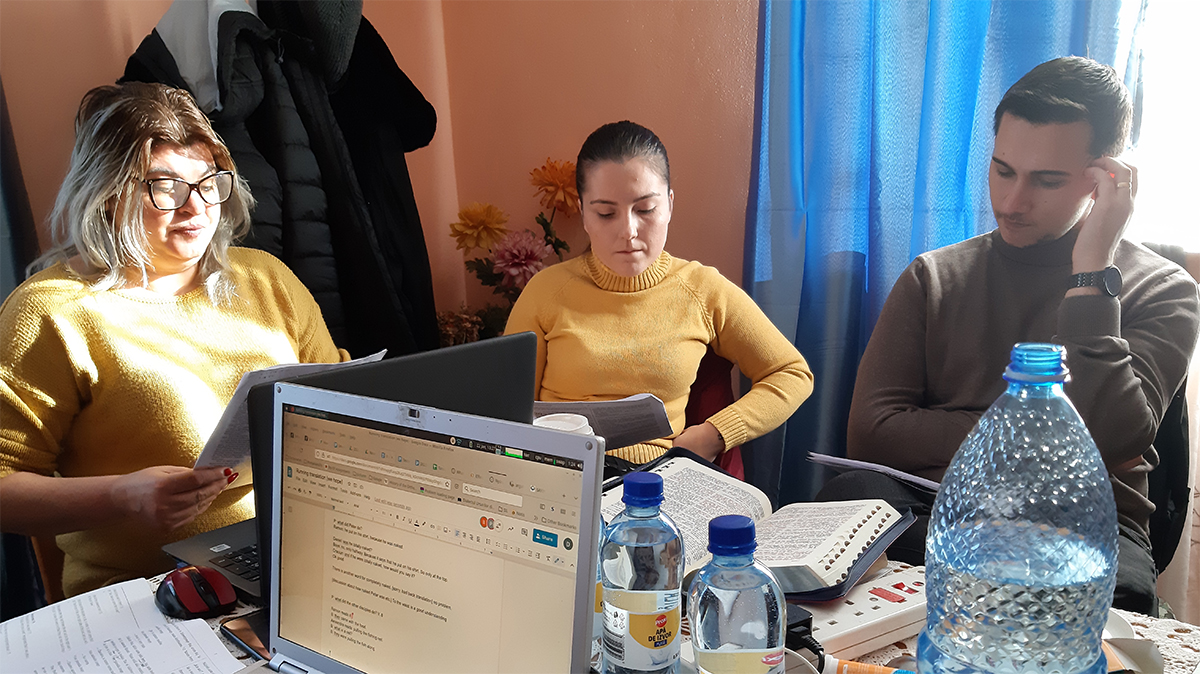 The Standard Romani Bible translation team at work
The Standard Romani Bible translation team at work ‘As we began working on the translation, I came to understand a lot of the deep meanings of the Bible. There were some chapters that I hadn’t really thought a lot about. But when we gathered and discussed every meaning, word, and expression, we had to work out what we needed to do to avoid misunderstandings. And this helped me realise there are a lot of very powerful messages behind some simple words. This has been very empowering for me.
‘Working on this project has changed both Daniel’s and my life – it is such a blessing to be involved. I think anyone who works on this project will have their life changed.’
But it’s not just the translation team that are being changed. Alexandra recognises the power of the Scriptures in Standard Romani for all Roma people:
‘Having the Bible in our own language is vital because it helps create a more personal relationship with God. Some of us frequently speak the Romanian language, but for me it’s easier and more personal to express my thoughts, pray, and communicate with God in Romani.’
Her husband Daniel agrees:
‘It’s important for us to have the Scriptures in Romani. It’s more powerful for me than using the Romanian version – it brings me closer to God, it touches deeper into my heart and mind.’
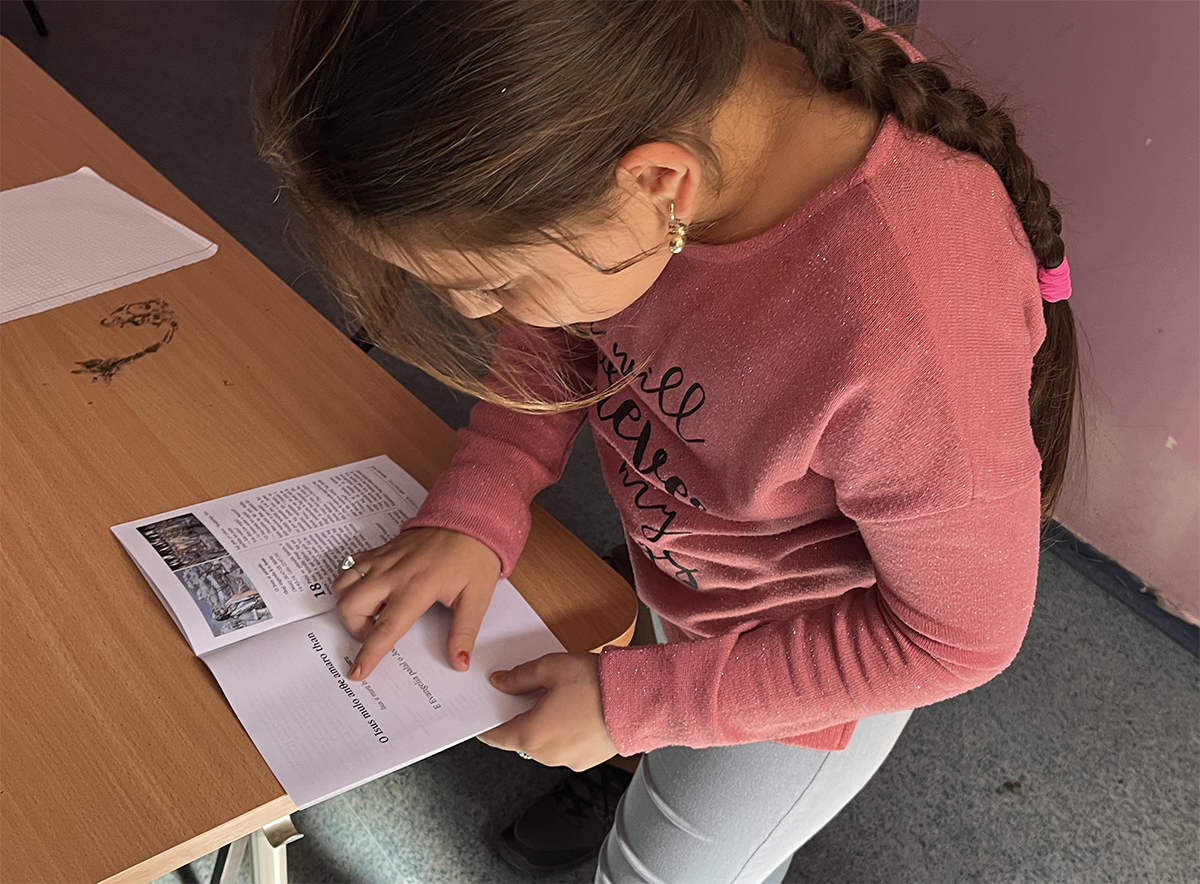 A Roma girl reads the Standard Romani translation of John in her school classroom
A Roma girl reads the Standard Romani translation of John in her school classroom The translation team has been together for over a year, and has already translated the Gospel of John, which is available in print and as an audio recording. As they travel around Roma communities, the team distributes the Gospel and measures people’s responses.
‘In some communities,’ says Rafael, ‘they are astounded. Their faces light up, and they say, “Oh, that’s my language!” In schools, the children read the Standard Romani book of John without any problems.’
As the Roma Church increasingly uses the Standard Romani Bible in church services and meetings, so – along with the government efforts – it will strengthen the use of Standard Romani among Roma communities. And give the Roma people the opportunity to access God’s word in their own language.
This feels like a pivotal moment. Although sometimes older generations may feel more comfortable with their own community’s version of Romani, the generation learning at school now – and future generations – will grow up speaking and writing Standard Romani.
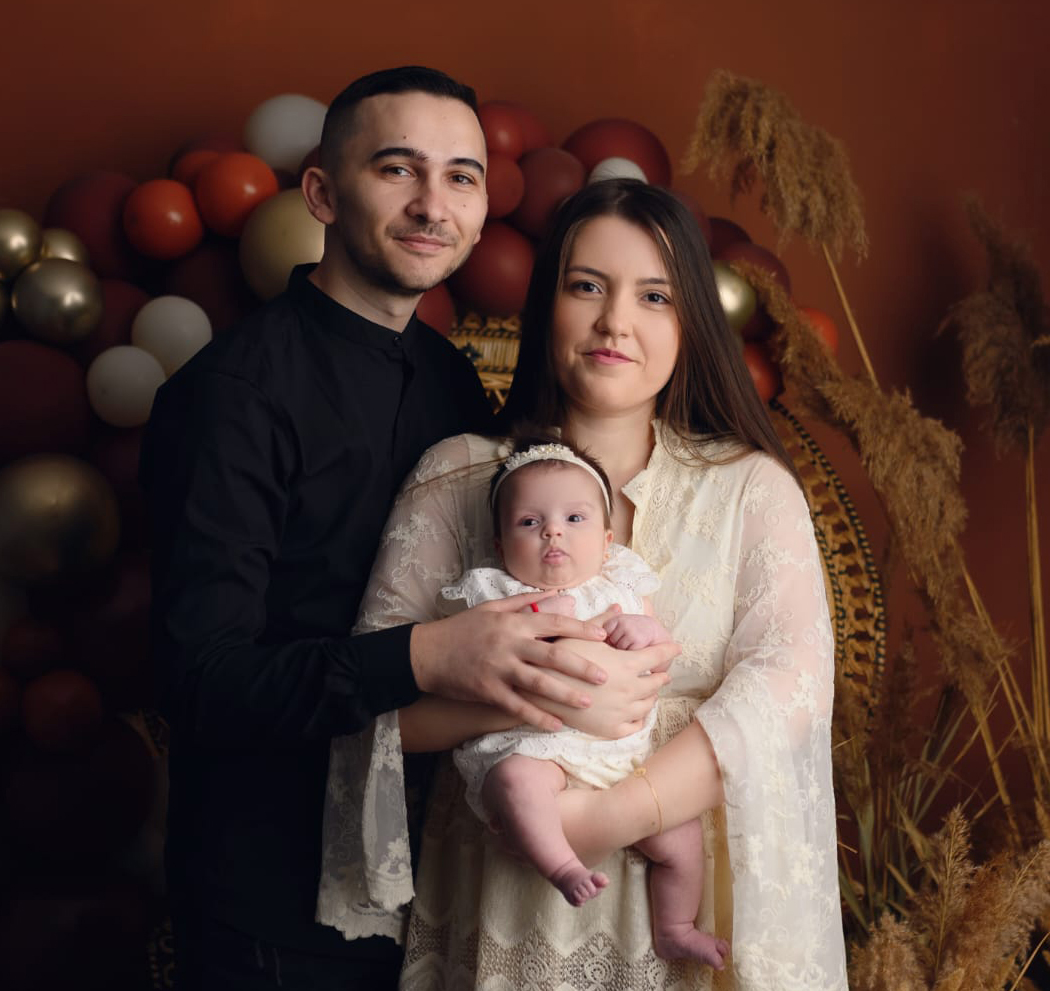 Daniel and Alexandra with their baby Miriam Ștefania
Daniel and Alexandra with their baby Miriam Ștefania And for Alexandra and Daniel, this has become really personal, as last December they had a baby girl – Miriam Ștefania.
‘For us, as we work on the Standard Romani Bible, knowing that our little girl will learn the language at school and be fluent in it, and be able to read about Jesus in the Bible with full knowledge and understanding – that is mind-blowing!’ says Alexandra. ‘It’s a beautiful thing! And one that even two years ago was not possible! We are so grateful to God for this! I think that the joy in our heart is now completed. It’s so empowering to be able to work for the translation of the Bible in Standard Romani, and Miriam gives us further hope for the future.’
As the next generations grow up with Standard Romani as their language, and being able to fully access the life-transforming message of the Bible, so change will come. ‘I know that the Bible is not just a book – it’s a transformational book,’ says Rafael. ‘It contains the word of God, and the word of God has the power to transform a community.’
The power to overcome our histories – both personal and communal.
‘Hundreds of years ago the Roma lived here as slaves,’ comments Daniel. ‘They had masters who told them what to do and they had no free will. Today, as we read God’s word in Standard Romani, we understand that Jesus is our Lord and he cares about us and wants good things for our lives. God doesn’t have ethnicity – he cares about everyone.’
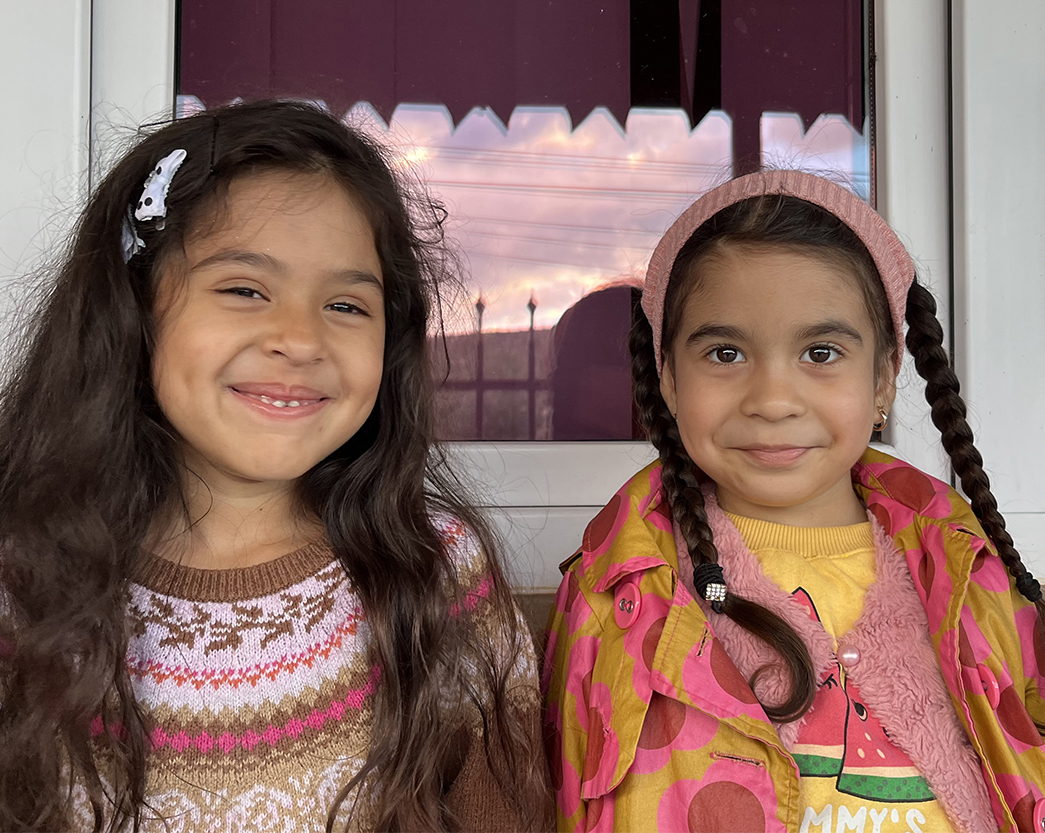
Bringing together a common Romani language of the future and the Bible in that language has massive potential to unite the whole Roma community in Romania. Having a common language and a common Bible could be the banner under which all Roma can come together and unite – and through that recover their identity and sense of worth. ‘The message in the Bible,’ says Alexandra, ‘is that we are all one in Christ and have our identity in God. This is really important for Roma people to understand.’
So the Standard Romani Bible is set to be the Romani Bible of the future. And it is integral to Roma learning and using their language, raising up their culture and identity, and enabling many more Roma to be reached with the gospel.
Rafael says: ‘For the Roma, who’ve been enslaved, persecuted, and exterminated, the gospel message we bring is that now they can have honour and dignity, they can be chosen and in a royal family, they can have citizenship and a spiritual passport. This is a unique message for the Roma.
‘Having God’s word in our Romani language is a vital expression of the fact that we are precious in God’s sight, and that our culture and language is loved by God.’
The Roma migrated from northern India into Romania over 600 years ago. As a result, the roots of the Romani language are Indian, and particularly Gujarati, Hindi and Punjabi. For centuries (in some cases, until the mid-19th century), many Roma in Romania were enslaved.
Over time, different Romani dialects developed in Romania. Each dialect has drawn in influences, words and phrases from its local region. So, for example, the dialect of Roma living near Hungary includes many Hungarian words; the dialect in Southern Romania includes many Turkish words; etc.
It is difficult to know how many Romani there are in Romania: the 2011 census lists 621,573. But due to the stigma that many Roma feel, many would not have identified themselves as Roma in the census. The true figure might be as high as 2 million.